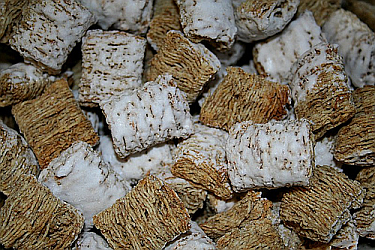Kids and Brain Nutrition: It Takes More Than Mini-Wheats
Parents who want to boost their kids’ brainpower take note: The Federal Trade Commission has just announced a settlement with breakfast cereal giant Kellogg’s over claims that just eating a bowl of Frosted Mini-Wheats cereal could boost a child’s attentiveness by almost 20 percent. Faulting both the science of Kellogg’s study and its interpretation of the results, the FTC charged that Kellogg’s claim are false and in violation of the FTC Act. Chairman Jon Leibowitz adds, “We tell consumers that they should deal with trusted national brands. So it’s especially important that America’s leading companies are more ‘attentive’ to the truthfulness of their ads and don’t exaggerate the results of tests or research. In the future, the Commission will certainly be more attentive to national advertisers.” This is good news for consumers but perhaps bad news for parents who were (or are) eager to find something ‘easy’ to help their children pay attention, learn and develop intellectually. Fortunately, there are some great products and nutritional factors that can help kids learn and concentrate better, but don’t count on Kellogg’s to clue you in. Get an overview in today’s AllStarHealth blog.
Parents who want to take a nutritional approach to helping their kids perform better in school really don’t need to become nutritional experts. The main goal is ensuring that kids get everything they need nutritionally, and minimizing their exposure to anything that undermines optimal brain function like added sugars. It also helps to try and establish healthy eating habits discourage those that work against health.

At any age, nutritional status has a major effect on brain functions and mood.
At any age, the brain is exquisitely sensitive to nutritional imbalances. The absence or presence of key nutrients, blood sugar and insulin imbalances, and eating patterns all have a major influence on mood and the ability to concentrate and learn.
So first and foremost, make sure you cover all the child’s nutritional bases with an omega 3 supplement and a multi-vitamin. Optionally, but strongly recommended, would be a daily protein shake of appropriate serving size.
Omega 3 essential fatty acids have been extensively studied with respect to brain health, learning and mood, and they are clearly essential to these factors. The tricky part is getting enough from diet alone. Almost no one does, especially kids, so these are all-important nutrients for their brain power.
There are ‘gummy bear’ style omega-3 supplements for kids, and they’re better than nothing, but they contain appreciable amounts of sugar, so they might be something some kids need to avoid. A much better bet would be flavored fish oil liquid that can be strategically blended into a protein shake without the kids knowing any better. Unflavored fish oil is surprisingly neutral in taste and odor – any strong fishy taste or smell only develops as the oil oxidizes and spoils. So flavored fish oil liquids work well in shakes if the product is of very high quality. In addition, try to increase healthy omega-3s with foods like omega-3 fortified eggs, canola oil, raw walnuts, all kinds of fish including canned tuna and salmon, and flaxseed meal that you add to oatmeal or any other recipes.
Multivitamins are the next most-important supplement for kids and their brainpower. Kids 13 and over can use any adult multivitamin but since many teens have trouble taking capsules and tablets, know that there are liquids, powders and chewables too, which they may find easier to use, and of course it’s all about getting them something they can and will use. For very young children, there are ‘gummy bear’ type multivitamins that work well, although they are much lower in potency than other types of kids multis, and have the issue of sugar. Like liquid fish oils, there are also liquid and powdered multivitamins that can be added to a kids protein shake in a age-appropriate dose if you can’t find a multi option you and your kids like.

Fish oil omega 3s are a much better way to support brain health.
Finally, as far as some general nutritional guidelines for kids and brain health, there are many, and there’s really insufficient space to do the topic justice here. You probably know most of them already anyway: Lots of fruits and vegetables, lots of healthy raw nuts and seeds, but rarely or never fast food, junk foods or convenience foods. So, we’ll leave you with what we feel is the most important one: Avoid sugar in all its forms (the exceptions would be natural and healthy polyol sugars like xylitol and erythritol that are not only OK to use, in fact they’e perfect sugar substitutes) This means obviously sugary things; candy, non-diet sodas, the mostly-sugar ‘fruit juice’ drinks, most breakfast cereals, snack bars, and desserts. And not-so-obviously sugary things like high-glycemic carbs: white breads, crackers, white, rice, ramen noodles, and so on. Naturally-occurring sugars in whole fruits and vegetables are OK, of course.
- Posted in Health, Nutrition and Science News
- 1 Comment




